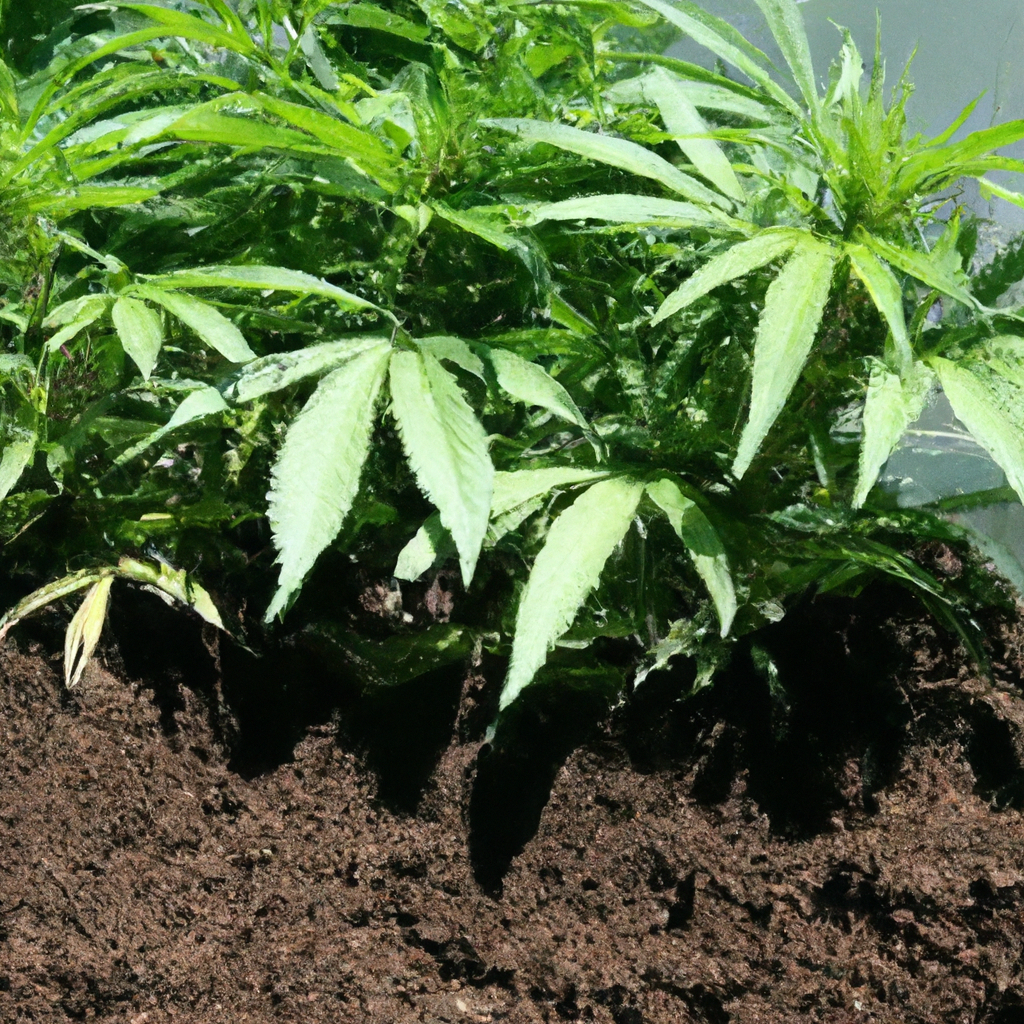Your cart is currently empty!
In an age where sustainability and health take center stage, organic cannabis cultivation presents a powerful approach to growing plants in harmony with nature. This guide delves into key practices for using natural fertilizers, compost, and pest control, all while fostering a healthy soil ecosystem that enhances both environmental wellness and consumer health.
Fostering a Flourishing Soil Ecosystem
A thriving soil ecosystem is the cornerstone of successful organic cannabis cultivation. It involves nurturing a community of beneficial microbes, insects, and fungi, all contributing to promoting plant health and productivity.
- Compost and Organic Matter: Add compost to enrich soil with essential nutrients. This organic matter decomposition not only feeds the plants but also beneficial soil organisms.
- Mulching: Use organic mulch to retain moisture, regulate soil temperature, and suppress weeds, all while eventually breaking down to improve soil structure.
- Cover Crops: Employ cover crops, such as clover or alfalfa, to improve soil fertility and structure by adding organic matter and fixing nitrogen levels.
Utilizing Natural Fertilizers
Organic cannabis growers have an array of natural fertilizers at their disposal, each providing a unique blend of nutrients while maintaining ecological balance.
- Vermicompost: Utilize worm castings for a gentle nutrient release rich in beneficial microbes.
- Bone Meal and Blood Meal: Bones and dried blood offer a slow release of phosphorus and nitrogen, essential for plant growth.
- Guano: Bat or seabird guano provides rapid nutrient release, especially for flowering stages.
Eco-Friendly Pest Management Strategies
Avoiding synthetic pesticides protects both the environment and your cannabis crop. Opt for natural pest control methods to maintain balance in your garden.
- Companion Planting: Plant herbs like basil and marigolds alongside cannabis to repel pests naturally.
- Biological Controls: Introduce beneficial insects like ladybugs or predatory mites to control pest populations.
- Neem Oil: This multi-purpose pest deterrent can be used to combat a variety of insect issues without harming beneficial insects when applied carefully.
The Benefits of Organic Cannabis Cultivation
Choosing organic methods isn’t just about being eco-friendly; it also has numerous benefits for consumers and growers alike.
- Healthier Plants: Organically grown plants often boast higher concentrations of terpenes and cannabinoids.
- Environmental Benefits: Organic farming reduces pollution, conserves water, and promotes healthy soil, thus contributing positively to climate change mitigation efforts.
- Consumer Trust: Organic cannabis products are in high demand for their perceived health benefits, attracting a loyal customer base.
Conclusion
Embracing organic cannabis cultivation means committing to practices that sustain the environment and promote superior crop quality. By prioritizing natural fertilizers, compost creation, and ecological pest management, growers can produce healthy, resilient plants while supporting their local ecosystems. Remember, each small step towards organic farming contributes significantly to a sustainable future.
Tags: Natural Cultivation, Cannabis Cultivation, Sustainable Practices, Natural Fertilizers, Pest Management
Discover more from Magic Clones
Subscribe to get the latest posts sent to your email.


Leave a Reply